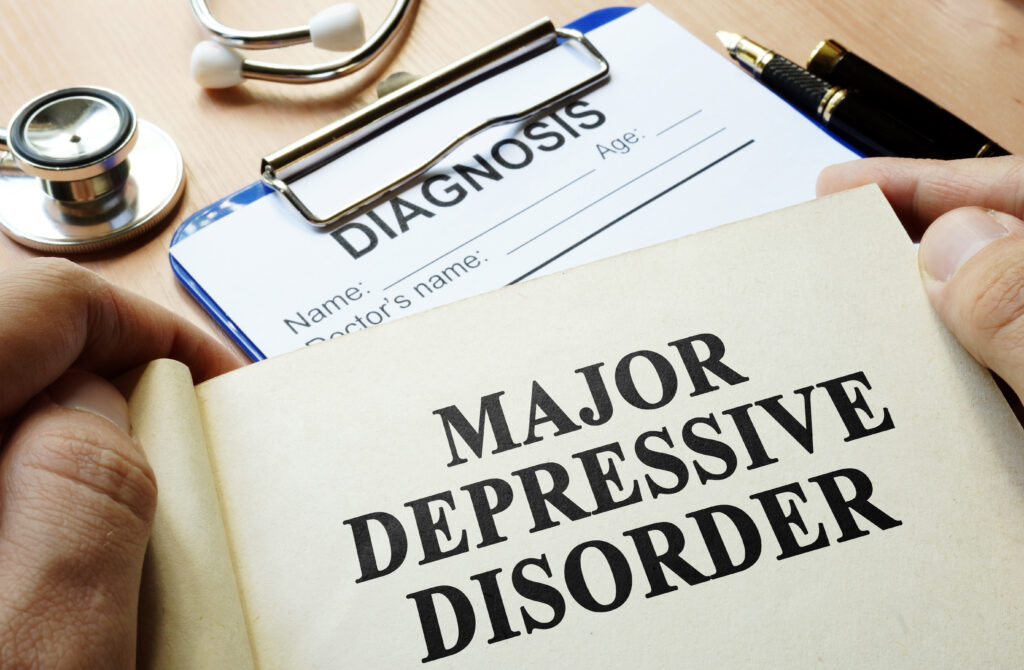Fabre Kramer Pharmaceuticals, Inc., a Texas-based pharmaceutical firm specializing in psychotropic drug development, revealed that its groundbreaking antidepressant, Exxua (gepirone extended release) for treating major depressive disorder (MDD), received US Food and Drug Administration (FDA) approval on September 22, 2023.
The company initially submitted a New Drug Application (NDA) Amendment to the FDA on December 23, 2022.
“Exxua represents an important milestone in the treatment of MDD, a serious and debilitating condition that affects millions of people worldwide,” said Stephen Kramer, MD, CEO of Fabre-Kramer, in the company’s news release.
“There is value in providing prescribers and patients with a wide range of effective options for use in clinical practice. We are proud to bring this innovative therapy to patients who need a new option to manage their depression and improve their quality of life,” added Kramer.
The World Health Organization (WHO) ranked MDD as the third leading global cause of disease burden in 2008 and predicts it will become the leading condition by 2030. Symptoms of MDD include ongoing low or depressed mood, anhedonia (a reduced ability to find pleasure in once-enjoyable activities), feelings of guilt or worthlessness, reduced energy levels, impaired concentration, changes in appetite, psychomotor retardation or agitation, sleep disturbances and in severe cases, thoughts of suicide.
In the US, an estimated 21 million adults experience MDD annually, according to the US Department of Health and Human Services. Alarmingly, nearly two-thirds of diagnosed and treated patients do not achieve an adequate treatment response with current first-line therapies. This underscores the pressing need for novel treatments with innovative mechanisms of action.
The management of MDD involves a range of treatment options, including pharmacological, psychotherapeutic, interventional and lifestyle modifications. Initial MDD treatment typically includes medications, psychotherapy or a combination of both. Studies have shown that combination therapy, which combines medication and psychotherapy, tends to be more effective than either of these treatments in isolation.
XTALKS WEBINAR: A Step-by-Step Approach to eSource in Clinical Trials
Live and On-Demand: Thursday, October 26, 2023, at 10am EDT (4pm CEST/EU-Central)
Register for this free webinar to learn how to adopt an incremental approach to eSource (EHR to EDC integration) across multiple trial scenarios to overcome real and perceived challenges.
How Does Exxua Work?
Exxua is indicated for the treatment of MDD in adults. It is available in the form of extended-release tablets for oral administration. The recommended initial dose of Exxua is 18.2 mg, to be taken once daily with food at approximately the same time each day.
Exxua contains gepirone, an azapirone antidepressant believed to exert its therapeutic effects by modulating serotonergic activity in the central nervous system through selective agonist activity at serotonin (5HT) 1A receptors.
This distinctive mechanism of action offers relief from depressive symptoms without the significant side effects commonly associated with other antidepressants, such as sexual dysfunction and weight gain.
Steady-state plasma concentrations are typically attained within two to four days of daily oral dosing. The mean terminal half-life of gepirone is approximately five hours, with 60 percent of the drug being excreted in the urine within the first 24 hours.
Efficacy and Safety of Exxua
Exxua’s effectiveness in treating MDD in adults was assessed over two eight-week randomized, double-blind, placebo-controlled studies involving participants aged 18 to 69 years. The primary efficacy metric was the change from the initial Hamilton Depression Rating Scale (HAMD-17) total score by Week 8.
In both studies, Exxua-treated patients showed significantly greater improvements in the primary endpoint than those in the placebo groups.
“I am thrilled for our patients that Exxua is now FDA approved for the treatment of MDD. Exxua is the first 5-HT1a agonist with superior efficacy vs. placebo as MDD monotherapy, yet did not differ from placebo in rates of sexual dysfunction in clinical trials. This provides an important new treatment option for patients,” said Anita H. Clayton, MD, Chair, Department of Psychiatry & Neurobehavioral Sciences, University of Virginia School of Medicine, a renowned clinician and researcher of sexual dysfunction issues in MDD treatment.
Exxua demonstrated a commendable safety record throughout these clinical trials and was well-tolerated by patients. The most frequently reported side effects included dizziness, nausea, headaches and drowsiness.
New Prescription Drugs for MDD Treatment Are on the Market
The market offers several recently FDA-approved alternatives for MDD treatment.
Recently, AbbVie secured FDA approval for Vraylar (cariprazine) as an adjunctive therapy with other antidepressants for adult MDD patients. Clinical trials revealed notable improvements in the Montgomery-Åsberg Depression Rating Scale (MADRS) from baseline to Week 6 for those administered a daily 1.5 mg dose of cariprazine along with their regular antidepressant therapy, compared to patients given a placebo with their therapy.
Vraylar’s efficacy is attributed to its partial agonist activity on dopamine D₂ and serotonin 5-HT1A receptors, and antagonist action on serotonin 5-HT2A receptors. Additionally, pharmacodynamic studies highlighted Vraylar’s potential due to its high binding affinity to dopamine D3, D2 and serotonin 5-HT1A receptors.
In 2022, Axsome Therapeutics introduced Auvelity (dextromethorphan HBr -bupropion HCl), an extended-release tablet comprising a mix of dextromethorphan and bupropion, for adult MDD management. Auvelity marries dextromethorphan’s properties — which acts as a N-methyl-D-aspartate (NMDA) receptor antagonist and sigma-1 receptor agonist — with bupropion’s function as a CYP450 2D6 inhibitor.
Auvelity’s FDA approval came on the heels of two pivotal clinical trials, where significant reductions in MADRS scores were observed in patients on Auvelity compared to the placebo counterparts.












Join or login to leave a comment
JOIN LOGIN